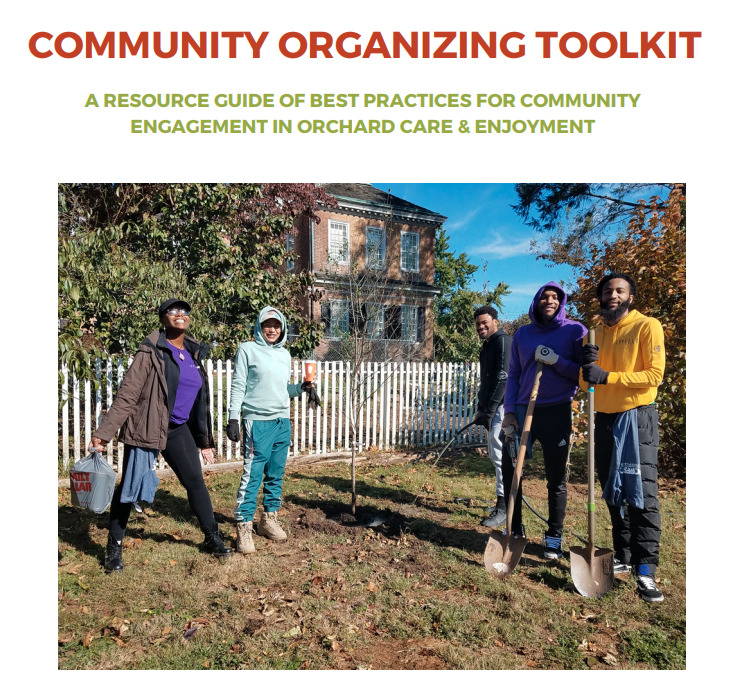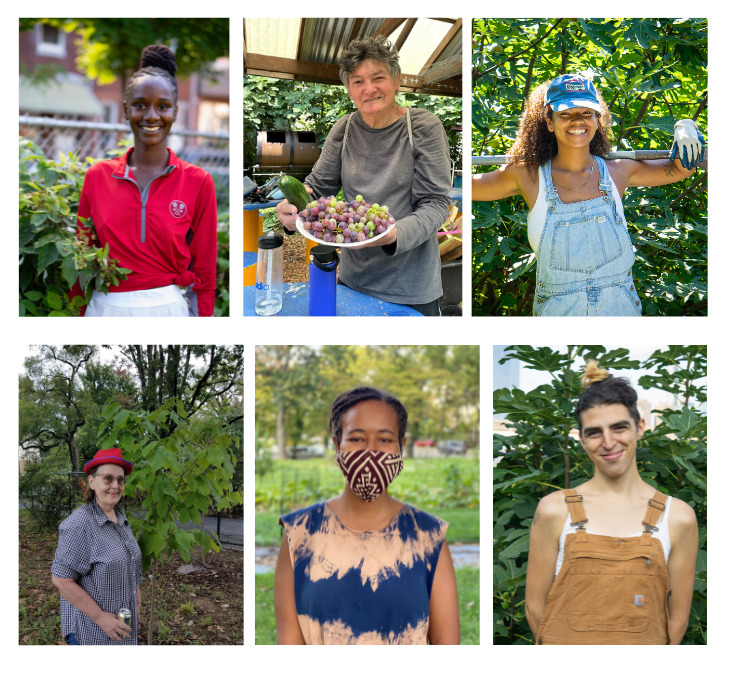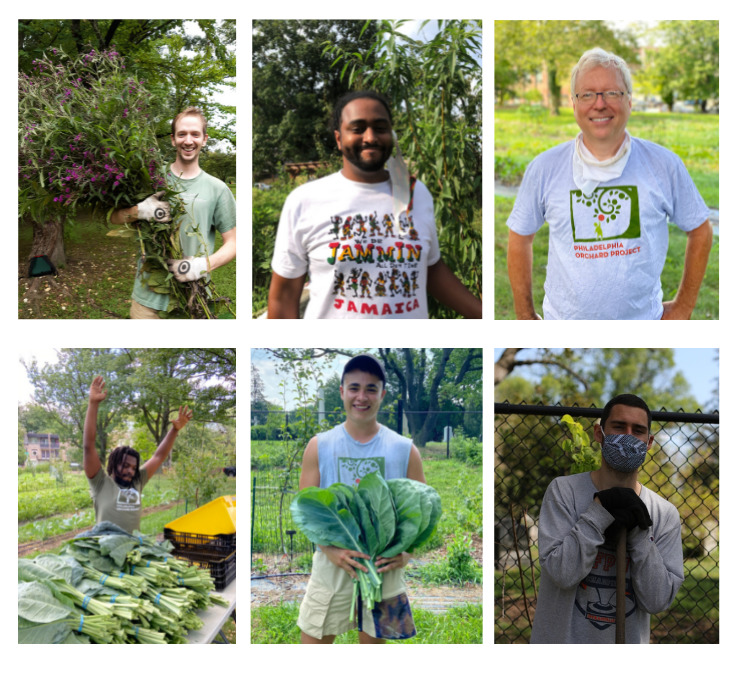Program Background & Planning
It is well past time to offer a formal introduction to a program that has been operating for two years now, one which we’ve talked about plenty internally with staff, partners, and volunteers, but which hasn’t been featured on our website or blog. This post offers a retrospective look at the development and expansion of a new program that helps advance POP’s core mission of planting and supporting community orchards.
Thinking back to early 2020, it was a time of anxiety and uncertainty, with the Covid-19 pandemic causing shut-downs and changes to everyday routines. Results of a brief survey of partners in March/April 2020 showed us that 68% of those who responded had modified their programs or operations, 27% were fully closed, and the remaining 5% were operating normally at that time. The majority (68%) definitely or potentially wanted assistance with orchard maintenance from POP staff; due to social distancing recommendations at this time, neither POP nor partner sites were recruiting outside volunteers.
Even before the start of the pandemic, we knew that the number one request made by POP’s partners (according to past partner surveys) was more hands-on support from POP staff. Given the small size of POP’s team, we knew this would be difficult to deliver, but we also thought of the many hundreds of volunteers who had supported POP or our partners at past planting events and community work day. We suspected that within this larger group, there was an untapped resource that could help to support POP and our community partners: people willing to make an ongoing volunteer commitment in their own neighborhood orchard or garden.
Thus, in the spring of 2020 and with support from the William Penn Foundation, the Lead Orchard Volunteer (LOV) Program was piloted. The goals of this program were two-fold: to provide additional direct support to POP community orchards across the city, and to expand opportunities for deeper engagement and training for POP volunteers based on one of POP’s core values of learning.
In advance of the program launch, POP staff were busy compiling more resources to be used year round by partners, volunteers, and staff. A summary of orchard roles and responsibilities was published in early 2020, as the new program was being piloted, to help clarify these roles. In February 2020, POP published a new detailed monthly orchard task list, as well as a harvest tracking sheet. These components were both part of an other resource in development at that time, a new Community Organizing Toolkit. Though not completed and published until later in in 2020, this guide (described further in this blog post) contains some of the lessons learned by POP staff, or shared with us by partners, about best practices for fostering community engagement, tips on running volunteer work days, communication tactics, and planning for the harvest.

Pilot Sites for the LOV Program
There is a range of ways in which the main site stewards of community orchards are supported by POP staff and programs. A subset of sites have regular monthly orchard work days, with or without POP staff in attendance: this is recommended by POP as the minimum required for a successful and productive orchard, but not all of POP’s partner sites have the staff or capacity to accommodate this schedule. Another subset have quarterly orchard work days, with POP staff making a site visit once per season to identify or address pest, disease, or production challenges. Some sites are fairly self-sufficient, and may only call on POP for help once a year during winter pruning season.
For the 2020 pilot of this new program, POP decided to work with a handful of sites that had a good variety of established trees and plants, as well as ongoing monthly work days and could be used as training locations, including Sankofa Farm at Bartram’s Garden, FNC’s 8th & Poplar Farm, Cobbs Creek Environmental Center, Penn Park Farm & Orchard, Woodford Mansion, Strawberry Mansion, and the Fairmount Park Horticulture Center’s Food Forest. Two school sites (Cramp ES, Lea ES) had limited access but received visits from POP staff and LOVs when possible.
The POP Learning Orchard at The Woodlands was also included as a pilot location. This orchard was newly established in 2020, and volunteers planted new trees, berry bushes, and pollinator plants, as well as helping to plant and harvest annual crops grown for emergency food production over the past two years. Below, we share some photos of LOVs from 2020 and 2021, serving at a range of sites across the city.

Program Organization & LOV Recruitment
The key goal of this program is to expand the hands-on training and support services that POP provides, which community partners report to us year after year is what they value the most from POP’s team. Many communities already have dedicated volunteers who put in many hours to improve their neighborhoods for free. A needs-based stipend offers recognition and support of the time, energy, knowledge, and skills these leaders contribute to their local orchards and communities.
From year one to year two, the total number of LOVs, and the percentage opting to receive a stipend, increased by at least 50% showing that there is an interest in this program. The seasonal stipends currently max out at $500 per year, and we aim to increase the honorarium amounts over time to address the reality that to volunteer ones time is a privilege. We hope that by increasing the seasonal stipends, we can engage even more individuals from the neighborhoods most impacted by environmental injustice and food apartheid, and more easily share knowledge about perennial food production in Philadelphia’s diverse neighborhoods.
In both 2020 and 2021, interest in the program far exceeded the capacity for POP and our partners to manage, because POP needed to have staff available to attend regular work days with LOVs and community partners while training and onboarding new volunteers. In 2022, our approach has primarily been focused on building up the teams at each site, rather than expanding the program to new sites. We are pleased to see that returning LOVs from the first two years of the program have expressed interest in taking on leadership of LOV teams at their orchards, something which will help us greatly expand capacity of this program.
While many of the sites that hosted LOVs had an ongoing volunteer in mind, some requested help to identify candidates, which POP did through reaching out to our network of volunteers. Most partner sites prefer to hold their regular work days during the week, which made it difficult to match with interested volunteers who were primarily available on weekends. Despite these challenges, in both 2020 and 2021, approximately 75% of LOVs were placed at orchards in the same or adjacent zip code to where they lived. The best way to get involved with this program in the future is to become a regular volunteer, either with POP or with a partner site, many of which have regular volunteer opportunities available! Sign up for our Volunteer email list or see what upcoming opportunities are shared on our Events page.
Stay tuned for more posts with stories and interviews from LOVs!

In addition to earlier support from the William Penn Foundation, POP was awarded funding in 2021 by the Philadelphia Food Justice Initiative and CHOP’s Healthier Together program which will ensure the program thrives in 2022.
Resources / Links
2020 LOVs receive the Golden Persimmon Award
2021 LOVs receive the Golden Persimmon Award
Summary of Orchard Roles
POP Community Organizing Toolkit
This blog post was written by POP Co-Executive Director Kim Jordan.
SUPPORT US! If you found this entry useful, informative, or inspiring, please consider a donation of any size to help POP in planting and supporting community orchards in Philadelphia: phillyorchards.org/donate.